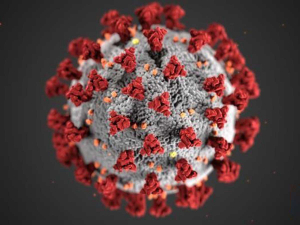M.I.A.
OPINION: The previous government spent too much during the Covid-19 pandemic, despite warnings from officials, according to a briefing released by the Treasury.
 A New Zealander managing a large dairy farm in the UK says he is not sure that farmers in NZ realise the problems they are about to face.
A New Zealander managing a large dairy farm in the UK says he is not sure that farmers in NZ realise the problems they are about to face.
Wake up, New Zealand: that’s the message from a New Zealander trying to manage a large dairy farm in the UK amid the COVID-19 outbreak.
A friend of the man who wishes to remain anonymous called Dairy News in a bid to make farmers in NZ aware of the situation in the UK which he describes as horrific.
The person whom we will call ‘Brian’ manages a large intensive dairy farm and has a staff of twelve says he’s not sure that farmers in NZ realise the problems they are about to face.
He is belatedly having to put in place a pandemic plan, but says his staff are stressed and falling ill – not to COVID-19, but colds and other forms of the flu. He says they are working long hours and with staff off sick, Brian is finding it difficult to get replacement staff.
“The virus hasn’t hit the cowshed yet, but people aren’t sleeping, are very stressed and this is having an impact on the whole operation,” he says.
Brian says he has developed a plan with a strong focus on social distancing and ensuring that staff are healthy. He says particular care is being taken on preventing farm accidents because he is not sure the health system can deal such serious accidents when the pressure goes on to deal with people who have COVID-19.
Brian says another problem that has arisen is theft. He says with panic buying in the UK, some shops have run out of milk and they have had instances of people coming at night and stealing milk from the vats. He says they are now having to put padlocks on these and increase their security on the property.
The person who rang Dairy News says people should look to history to prepare for the consequences of COVID-19.
She points to a noted Irish historian, Dr Ida Milne who has written extensively on the effects of the Spanish flu in Ireland. Dr Milne, an academic at Carlow College, she wrote a book called Stacking the Coffins – Influenza in Ireland in 1918-19 and is a recognised expert on disease research.
She says one of the consequences was that the men got sick and many died and it was left to rural women to run the farms, and the creameries.
According to the latest Fresh Produce Trend Report from United Fresh, 2026 will be a year where fruit and vegetables are shaped by cost pressures, rapid digital adoption, and a renewed focus on wellbeing at home.
The Roar is a highlight of the game hunting calendar in New Zealand, with thousands of hunters set to head for the hills to hunt male stags during March and April.
OPINION: The past few weeks have been tough on farms across the North Island: floods and storms have caused damage and disruption to families and businesses.
European dairy giant Arla Foods celebrated its 25th anniversary as a cross-border, farmer-owned co-operative with a solid half-year result.
The sale of Fonterra’s global consumer and related businesses is expected to be completed within two months.
Fonterra is boosting its butter production capacity to meet growing demand.
OPINION: Fonterra may be on the verge of selling its consumer business in New Zealand, but the co-operative is not…
OPINION: What does the birth rate in China have to do with stock trading? Just ask a2 Milk Company.